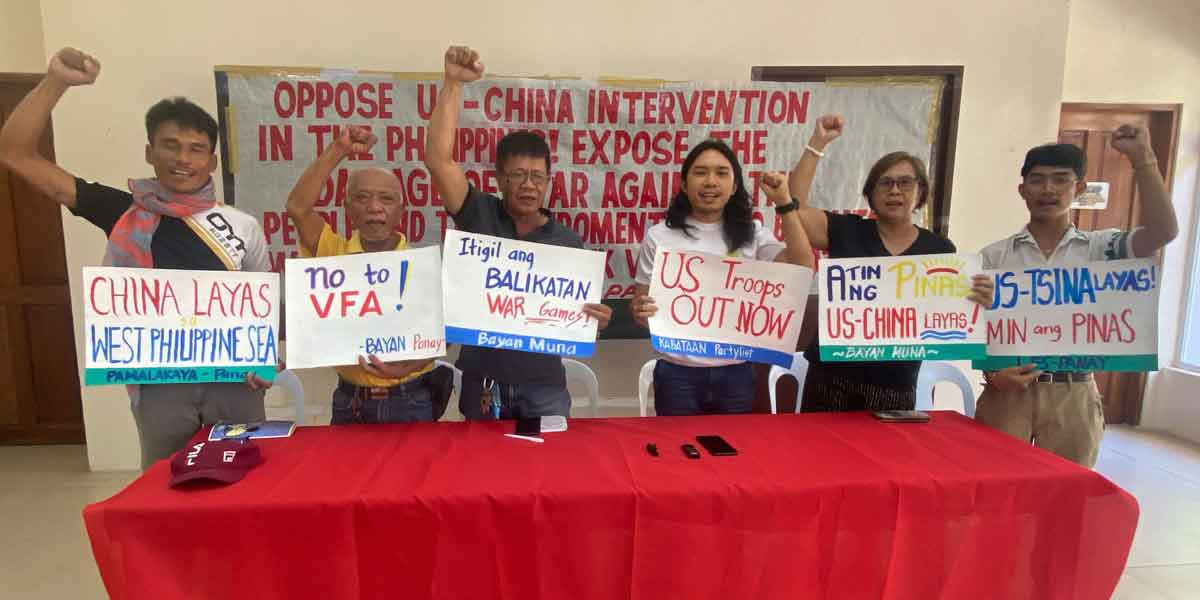
Toxics watchdog group EcoWaste Coalition is pushing for the stringent monitoring of business and industry compliance to the phase-out targets for hazardous chemical substances in products and wastes to protect public health and the environment.
To mark the ninth anniversary of the country’s globally-recognized Chemical Control Order (CCO) banning lead in all paint categories, the EcoWaste Coalition affirmed to “promote compliance monitoring to ensure that bans and/or phase-out targets on certain hazardous chemicals and wastes are effectively met.”
The Department of Environment and Natural Resources (DENR)-issued CCO dated December 23, 2013 received in 2021 the coveted Future Policy Award (special category for lead paint) for successfully implementing the ban on the use of lead additives in all paints, the first country in Southeast Asia to do so, to prevent children’s exposure to lead, which can harm the brain and the nervous system, delay growth and development, and cause learning, hearing, speech and behavioral problems resulting in lower IQ, shorter attention span, underperformance in school and juvenile delinquency.
“To the best of our ability and in close collaboration with other stakeholders, we will push for the adoption of strong chemical and waste policies and their successful implementation, which are critical to the fulfillment of our shared vision towards a zero waste and toxics-free future,” said Aileen Lucero, National Coordinator, EcoWaste Coalition. “We will continue to back and keep tabs on compliance monitoring efforts by responsible agencies.”
As adopted during its last General Assembly, the group declared its intent to continue supporting and promoting effective compliance to the CCO, which provided for a phase-out period of three years (2013-2016) for lead-containing architectural, decorative and household paints and six years (2013-2019) for lead-containing industrial paints. The EcoWaste Coalition and the International Pollutants Elimination Network (IPEN), supported by the Philippine Association of Paint Manufacturers (PAPM), lobbied for the removal of lead in all paint formulations under the CCO.
In accepting the award, then DENR Secretary Roy Cimatu stated “our drive to ensure safer lead-free paint products does not end with the issuance of this policy,” citing the government’s commitment to “strengthen monitoring to enhance environmental compliance among stakeholders and thereby ensure a healthy and lead-free environment for our people.”
Towards the effective enforcement of the lead paint ban, stakeholders have identified the need for “continuous compliance monitoring efforts, continuous information, education and communication activities, continuous promotion of paint manufacturers’ voluntary participation in the third-party Lead Safe Paint® Certification program, continuous maximization of opportunities to promote the procurement and use of lead-safe paints, and continuous participation in the work of the Global Alliance to Eliminate Lead Paint.”
The EcoWaste Coalition also vowed to pursue compliance monitoring to global and national policies banning polychlorinated biphenyls (PCBs) in electrical transformers and other equipment, mercury in skin lightening cosmetics and specific mercury-added batteries, light bulbs, medical devices and related products, and other chemical restrictions and bans promulgated by the Environmental Management Bureau, Fertilizer and Pesticide Authority, Food and Drug Administration and other regulatory and standard-setting agencies.


















